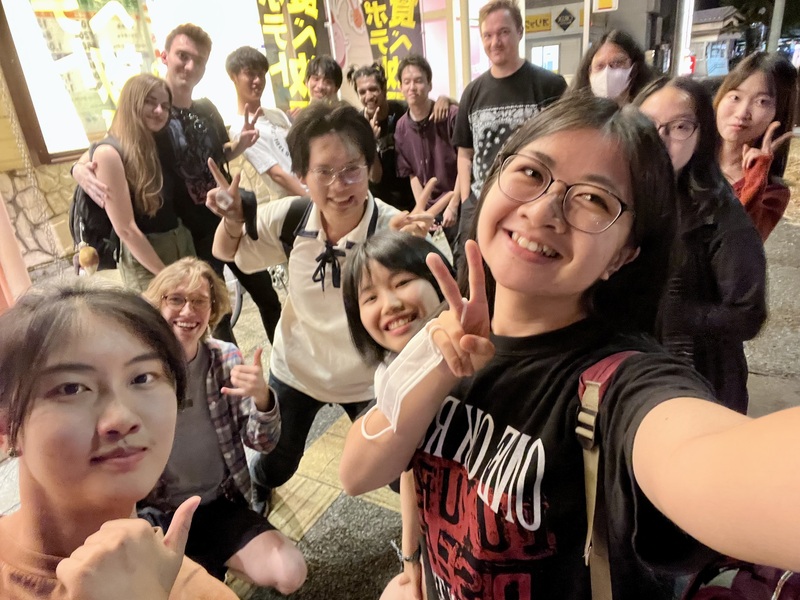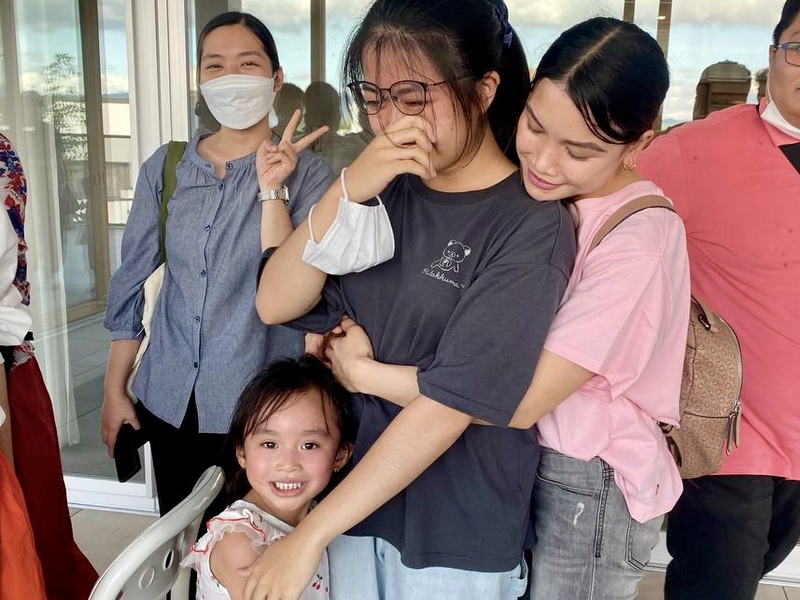
Embracing Unexpected Kindness: Navigating Isolation, Forming Connections, and Challenging Assumptions Abroad
Throughout my four months of studying abroad, I often found myself grappling with feelings of loneliness and isolation. These emotions were undoubtedly intensified by my familiarity with the constant presence of my younger siblings, as well as the care and support of my parents and friends back home. This sense of longing was especially poignant when I fell ill with COVID-19 in the midst of my study abroad journey. Accustomed to my mother’s attentive check-ins and the comforting Filipino dishes she prepared during times of sickness, I felt the absence of that familiar comfort more acutely.
Homesickness became a recurring theme in my experience, stemming from the deep bond I share with my family and my first time being away from them for such an extended period.
However, amidst these challenges, I found solace in the support network I cultivated in Japan. The friends I made and the school staff were instrumental in helping me navigate moments of difficulty. The camaraderie I shared with fellow students proved invaluable, as they consistently reached out and offered their assistance during my illness. Their concern extended beyond mere words, as one friend provided me with pain relievers, sparing me the challenge of translating medication labels at the drug store. In a heartwarming gesture, another friend offered me green vegetables to aid my recovery.
The caring attitude of my peers was mirrored in the school staff’s actions. When I was required to take a COVID-19 test, the dormitory staff went above and beyond, personally delivering a testing kit to my room. This display of concern exemplified the idea that across the globe, people are often driven to help and make a positive impact on the lives of others.
A common misconception that I encountered during my time in Japan was the notion that Japanese people are inherently distant and unfriendly towards foreigners. Recollections of lessons on Japanese xenophobia from my school days and negative portrayals I’ve seen online contributed to this misconception. However, my experiences in Aizuwakamatsu, a more rural city where I stayed, proved otherwise. The warmth and friendliness of the locals were evident once I made an effort to communicate and connect. This shift in perspective reminded me that preconceived notions can often lead us astray from the truth.
In my view, kindness is a universal trait that transcends borders. While the expression of kindness might manifest differently in different cultures, the underlying sentiment remains constant. In the United States, I’ve witnessed gestures of goodwill such as holding doors and striking up conversations with strangers. In Japan, the form of kindness might diverge from these norms, but it’s equally present. Instances where a Japanese man noticed and alerted me to a dropped 100 yen coin at the bustling train station or a Japanese woman kindly picked up a metal can I dropped highlighted the innate kindness that exists regardless of location.
Overcoming the isolation I initially felt in Japan required active participation on my part. By persistently studying Japanese, I aimed to bridge the language gap and communicate more effectively in the native tongue. Attending church services, where Tagalog was spoken, prompted me to learn more of this language as well, enhancing my connection to the worship experience. This engagement allowed me to grasp the church lessons more fully, reducing my feelings of detachment and loneliness.
As my study abroad journey drew to a close, I found myself torn between the strong longing I felt for my family and the deep appreciation I had developed for the friendships I had cultivated. The desire to be in two places at once was a sentiment that echoed within me. While I longed for the familiarity of home, the bonds I established in Japan nurtured a sense of belonging and a newfound appreciation for the kindness that exists universally. My experience taught me that even in the face of challenges, cultural barriers, and distance, human connection and compassion have the power to transcend it all.
The images below are from after my two going-away parties with school friends and with church friends.

